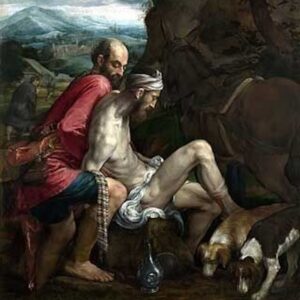Let me get this out of the way right now: Wallace Stevens has nothing to do with Vietnam. He never visited Vietnam (which he probably would have known as Indochina), and as far as I know never referred to it, or used any image associated with it in any of his poems. Never, nothing whatever.
Nothing except that as I was reading Viet Thanh Nguyen’s recent novels, The Sympathizer and The Committed—narrated by a North Vietnamese agent planted at first with a South Vietnamese General as the General flees Saigon—, I kept thinking of Stevens’s “The Snow Man,” and of how much this poem in particular (along with certain other poems by Stevens) helped me understand Nguyen’s critique of colonialism, not only in Vietnam, but throughout the world.
I’ll admit that the poem doesn’t begin as if it could do any such thing:
One must have a mind of winter To regard the frost and the boughs Of the pine-trees crusted with snow;…
No snow in Vietnam, of course. Not a bit of it! In The Sympathizer, we dodge bullets leaving steamy Vietnam only to land in sunny Los Angeles, then fly back to Laos, then hike back into Vietnam, where the narrator ends up tortured in a Communist “reeducation” camp in the middle of the jungle. No snow. In The Committed, the same narrator is already in Paris, summertime, and selling drugs, after escaping Vietnam with other Boat People on a deadly voyage in which snow plays no role. More no snow. Nothing.
Conversely, nothing about colonialism in Stevens. More nothing.
But that is the connection between Stevens and Nguyen. Nothing. Both writers are geniuses at revealing the revolutionary power of Nothing, Stevens for the literary, Nguyen for the political imagination. There’s nothing like nothing to release both imaginations from the dead end of habit and convention.
Nothing needs help to do that work, though. Stevens imagines that help coming from a “mind of winter.” That’s the mind—both Stevens and Nguyen want it to be our mind—where our tendency to make the usual, reflexive connections between events and ideas has been frozen, where those hot mental flashes arcing by the shortest route from Stimulus A to Interpretation B have been cooled down to zero.
Stevens continues “The Snow Man” by describing the cooling down process:
And have been cold a long time To behold the junipers shagged with ice, The spruces rough in the distant glitter Of the January sun; and not to think Of any misery in the sound of the wind, In the sound of a few leaves. Which is the sound of the land, Full of the same wind That is blowing in the same bare place…
Stevens is arranging a winter landscape where we march out equipped only with our trusty Pathetic Fallacy, and stand shivering where not only snow, but frost, ice, January sun, wind, etc., always and every time equal “misery.” But that was only because we didn’t spend enough time out there freezing. If we’d stood under those shaggy junipers long enough, we’d have become as frozen as the landscape itself. And then we would have heard what the land was really saying:
For the listener, who listens in the snow, And nothing himself, beholds Nothing that is not there and the nothing that is.
There in that last line is the reward of having my own banalities chilled to the bone: I myself become a nothing, a creature of fun, a snow man, a parody of a solid citizen, with a carrot for a nose and stones or pieces of coal for eyes. But those eyes enable me to see the beautiful unfolding of paradox in a way I never could when I was all hot to grab the nearest cliché. I see, first, the beauty of “nothing” as the affirmation of a positive through a double negative (“beholds / Nothing that is not there”) and the even greater beauty of nothing as itself both a positive and a negative (“the nothing that is”).
A comparable moment in Nguyen’s novels, where “nothing” unfolds its true colors, occurs at the end of The Sympathizer, at the climax of the narrator’s brutal interrogation in the jungle “reeducation” camp. His interrogator (actually his blood brother Man, who is using torture to force this transformative moment on our besieged narrator—a narrator who, by the way, is unnamed) makes him answer a question Ho Chi Minh used to pose all comers: What is more precious than independence and freedom? The tortured narrator keeps answering the question in the orthodox, banal way, the way he thinks he’s supposed to answer: Nothing is more important than independence and freedom. You see? “Nothing” is inert here; it serves merely as an exclamation point at the beginning of the italicized statement.…
…Or…. Wait a minute…. Do I actually mean the opposite? That everything is anything but inert?
I’m confused! But so was Nguyen’s narrator under Man’s torture until…until he acquired the “mind of winter” right there in the jungle and spat out the correct answer. Which is the same as the one he’d given before, but this time charged with its full paradoxical power. There is indeed something more important than independence and freedom and that something is nothing.
Yes, I know, this “answer” sounds like nothing but a gimmick, a grammatical quibble, a cruel trick. Well, but then nothing is still something, isn’t it? And anyway, if nothing has the revolutionary power in Stevens’s and Nguyen’s work that I claim it does, then there’s nothing to be done but see for ourselves.
We could start with the first line of Steven’s “The Well Dressed Man with a Beard”:
After the final no there comes a yes…
Or this from the end of The Committed, where the narrator’s other blood brother, Bon, asks:
Is nothing sacred to you?
At first you think it is a rhetorical question, because the answer can only be that of course some things are sacred to you. Your beliefs. Your friendships. Your mother. Or, conversely, defiantly, no, nothing is sacred! Everything can be transgressed! And then there is the third answer, of course…
Yes, you say. Nothing is sacred.
You’re such a bastard, Bon says…
In fact, the narrator is a bastard, with a Vietnamese mother and a French priest father. A man of two minds and more. Including a mind of winter. It is as if every word in these two novels was written with that mind, one listening for a wind blowing not through a land of pines and junipers but through the burning thickets of colonialist ideologies, in Vietnam, in the US, in France and wherever else oppression kills the imagination.
After getting his PhD in English literature, George Dardess taught close reading to his own students until his retirement. Since then he has been ordained a Deacon in the Roman Catholic Church and written several books on Muslim-Christian relations. He has also created the graphic novel Foreign Exchange.





